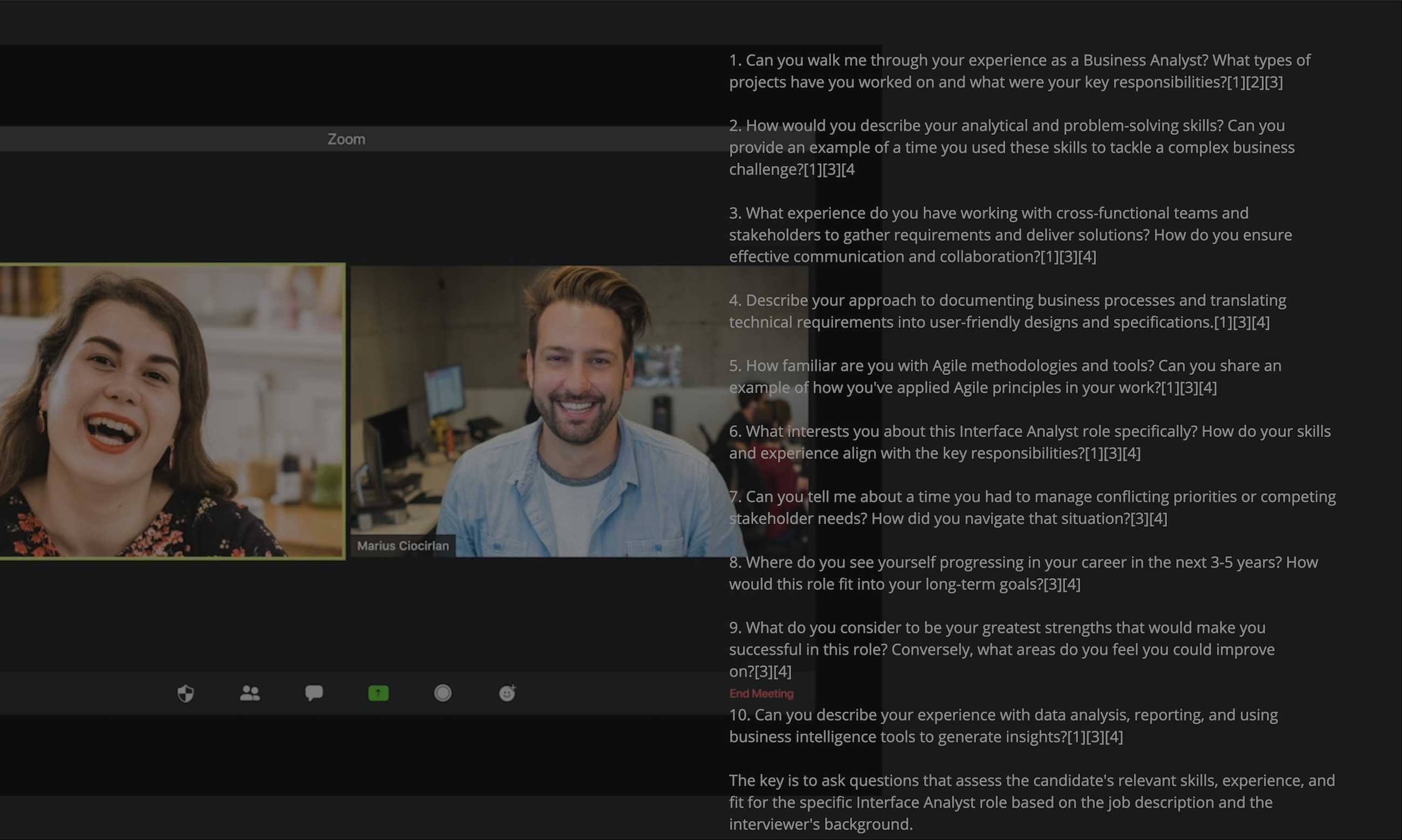
Using AI To Generate Practice Interview Questions
In recent years, the job interview process has undergone a ton of transformation driven by the changing dynamics of the job market and the increasing emphasis on finding the right fit between employers and candidates. Competition is pretty intense for positions and once you manage to land a starting interview, you need to be appropriately prepared to meet with your host.
Traditional interviews used to focus on assessing a candidate's technical skills and qualifications, but modern employers place a lot more emphasis on soft skills, problem-solving abilities, and cultural fit. Behavioural questions, which explore how a candidate has handled past situations, have become increasingly common.
Preparing with relevant questions at each stage of the interview process for each interviewer is essential to showcase your relevant experiences and demonstrate your suitability for the role. I've found that by digging into the hiring team and using AI, I can generate great prep questions to make me truthfully reflect on my experiences and prepare relevant and unique answers.
1. Find a web link to the job you are applying for.
We will give this to the AI to help formulate relevant questions. LinkedIn jobs are great for this so even if you apply using Indeed or Workday or Otta, always check if the job is posted on LinkedIn. On the job page, click the SHARE arrow (1) and the COPY LINK (2). Save this link.
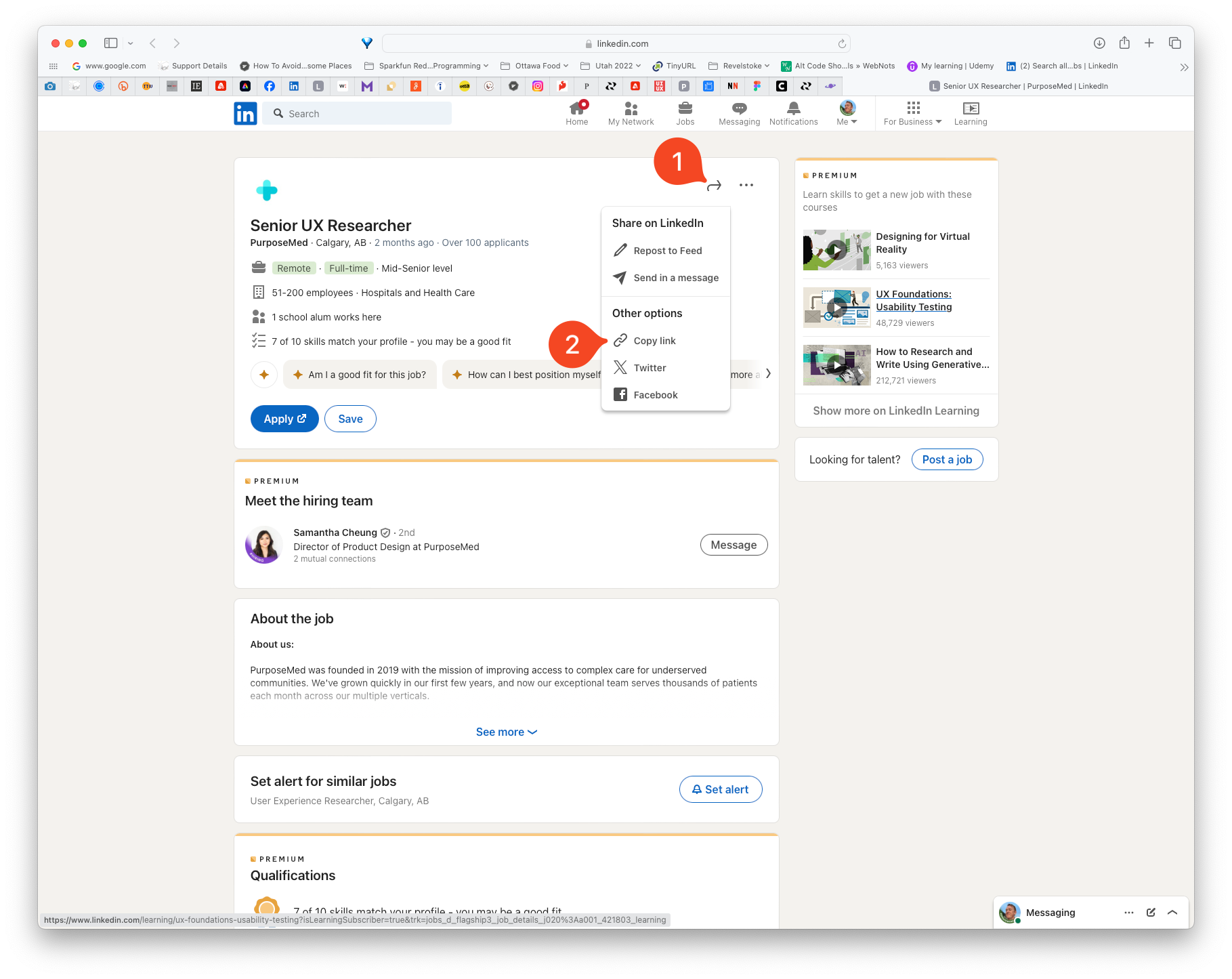
2. Find who is interviewing you and what their job title is.
The hiring team (3) is often listed on the LinkedIn job, and the specific Hiring Manager may be shown, but that person is not usually the first to meet you. Your first interview may be with a RECRUITER, and then a second interview with the HR TALENT SPECIALIST, and then you can expect to meet the HIRING MANAGER, who is usually the preson you will report to with a job title to match. (here we have Director of Product Design). If the Hiring Manager is not listed, go back to the job posting and see if it indicates who you would be reporting to. (Director, VP Design etc.). Then you can find that person or persons with the correct job title and use their profile. After interviewing with your future leader, you may meet with other team members or colleagues in UX, Design, Product Management, Research, Content or Engineering. As you progress through more interviews your HR contact will tell you specificcally who you are interviewing with. On this position the Hiring Manager is listed, so click on their name to jump to their profile. (4)
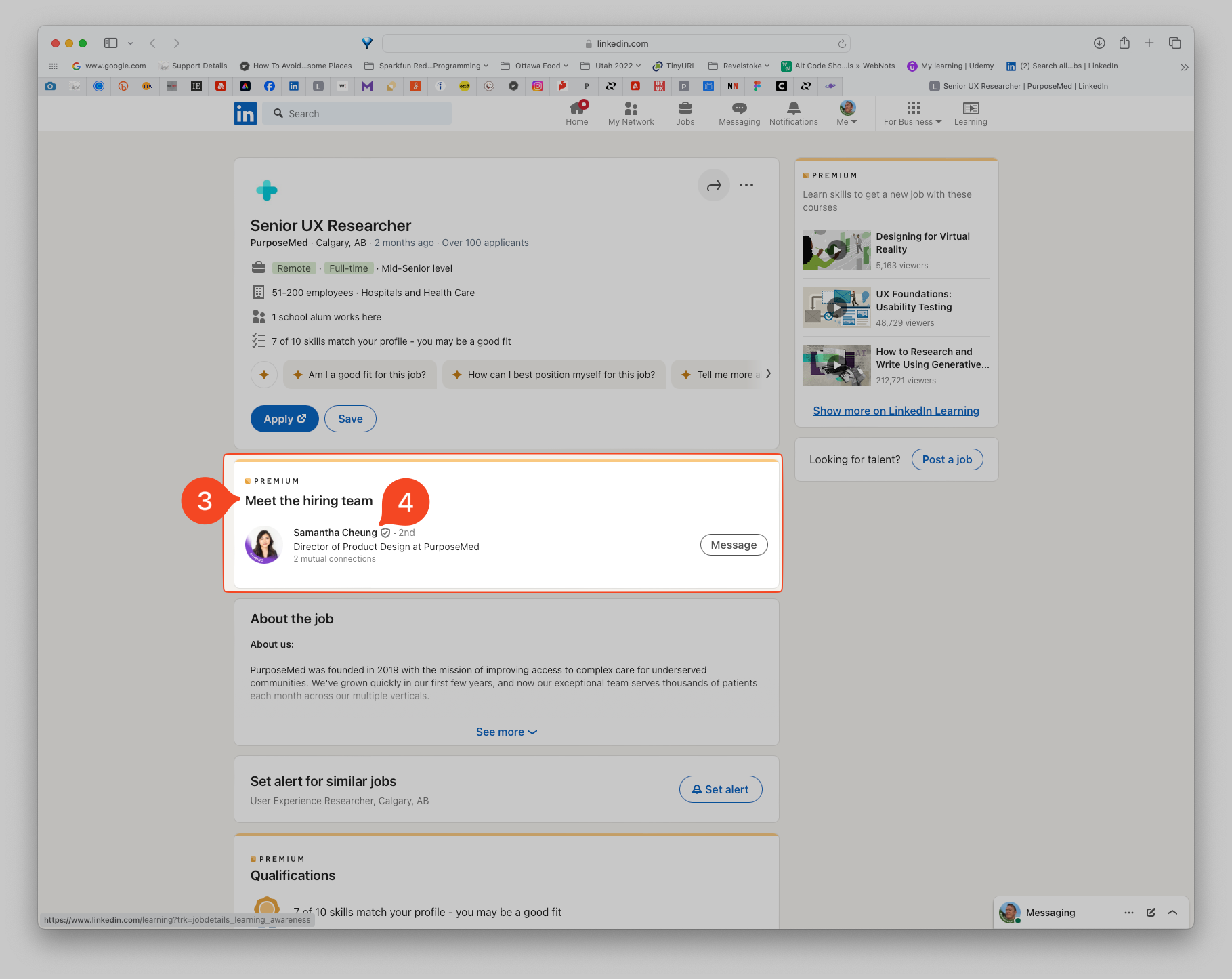
Once you are on the person's profile you can copy the profile linke (5) and their exact job description. (6)
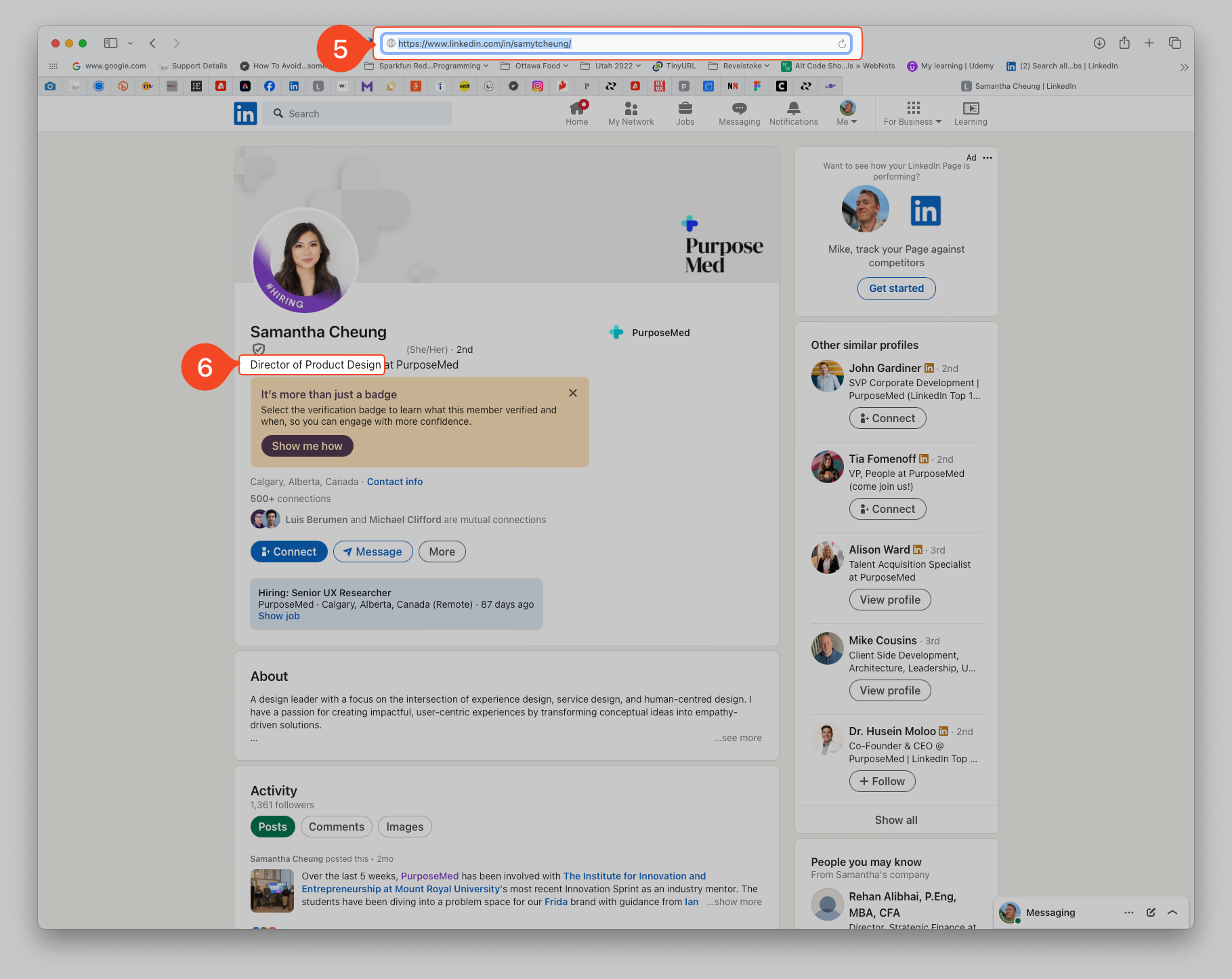
If there is nobody listed, or you are not interviewing with that person yet, then you will need to sleuth a bit. You can search in the company for people who have the correct title. Once you find an appropriate person (it doesn't necessarily need to be the the actual person, just someone with the same title) then you can select then and copy the link to their profile and their job title.
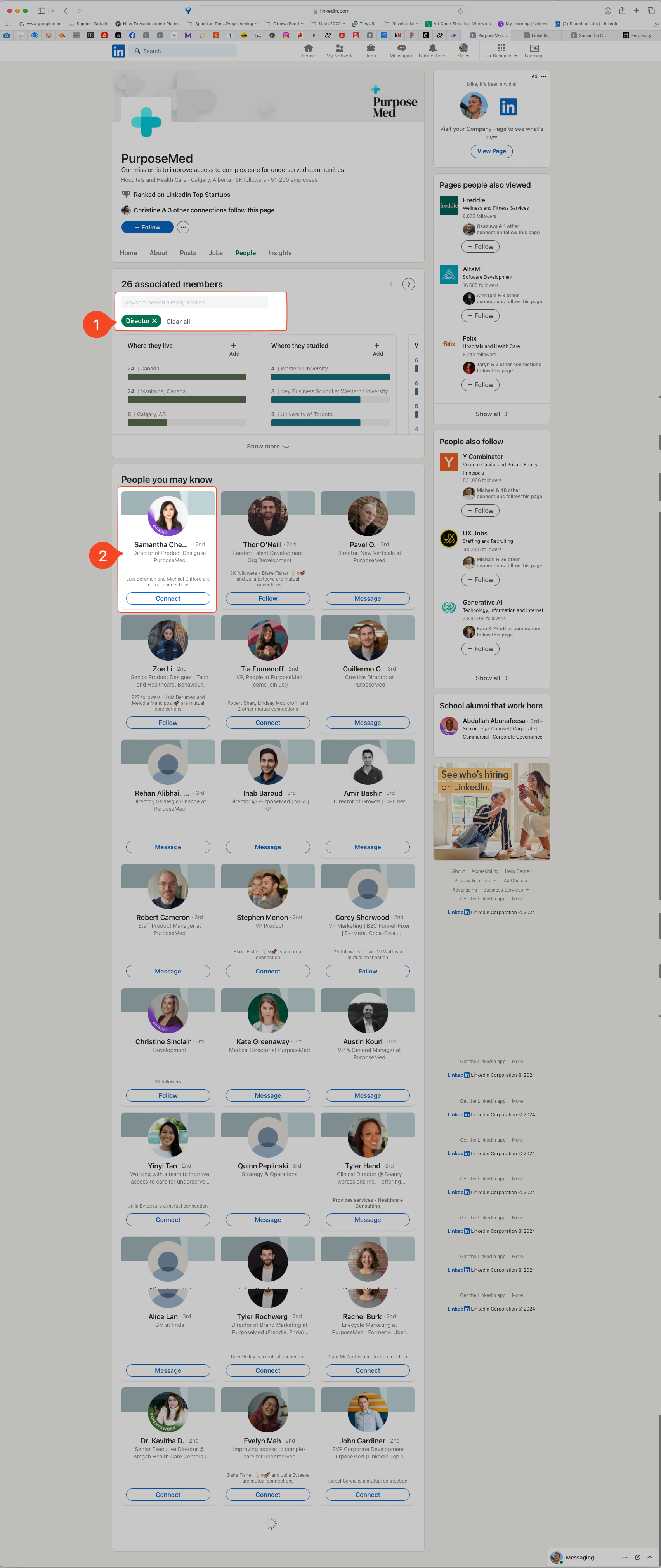
3. Ask your favourite AI to generate interview questions.
So now we have a link to the job posting, a link to the interviewer, and the interviewer's job title, so we can ask AI for help. I like to use Perplexity.
Open up your LLM Client and add:
Can you please generate a list of 10 questions that might get asked in the job interview for the following job opportunity based on the profile of this person as the interviewer, who is the Director of Design.
Job:https://www.linkedin.com/jobs/view/3820859733
Interviewer:https://www.linkedin.com/in/samytcheung/
4. Review the results.
Here are 10 potential interview questions a Director of Design might ask a candidate for the Senior UX Researcher role:
Results in Perplexity:
https://www.perplexity.ai/search/Can-you-please-zQuqwWOXQxC4wyYwdRLAHg#0
- How would you approach identifying and prioritizing the most impactful user research opportunities for our product roadmap?
- Can you share an example of a time you had to navigate conflicting stakeholder needs and how you were able to find a solution that satisfied everyone?
- What is your approach to translating quantitative research insights into actionable design recommendations?
- How do you stay up-to-date on the latest UX research methodologies and trends? What resources or communities do you engage with?
- Describe your experience collaborating with cross-functional teams, such as product and engineering. How do you ensure effective communication and alignment?
- How would you go about educating and upskilling our broader product team on user research best practices?
- Can you walk me through your process for conducting a competitive analysis and synthesizing the findings?
- What is your philosophy on balancing speed and rigor in user research for a fast-paced, high-growth environment?
- How would you measure the success and impact of your research work? What metrics or KPIs would you track?
- Describe a time when you had to make a difficult trade-off or decision in your research work. How did you approach that situation?
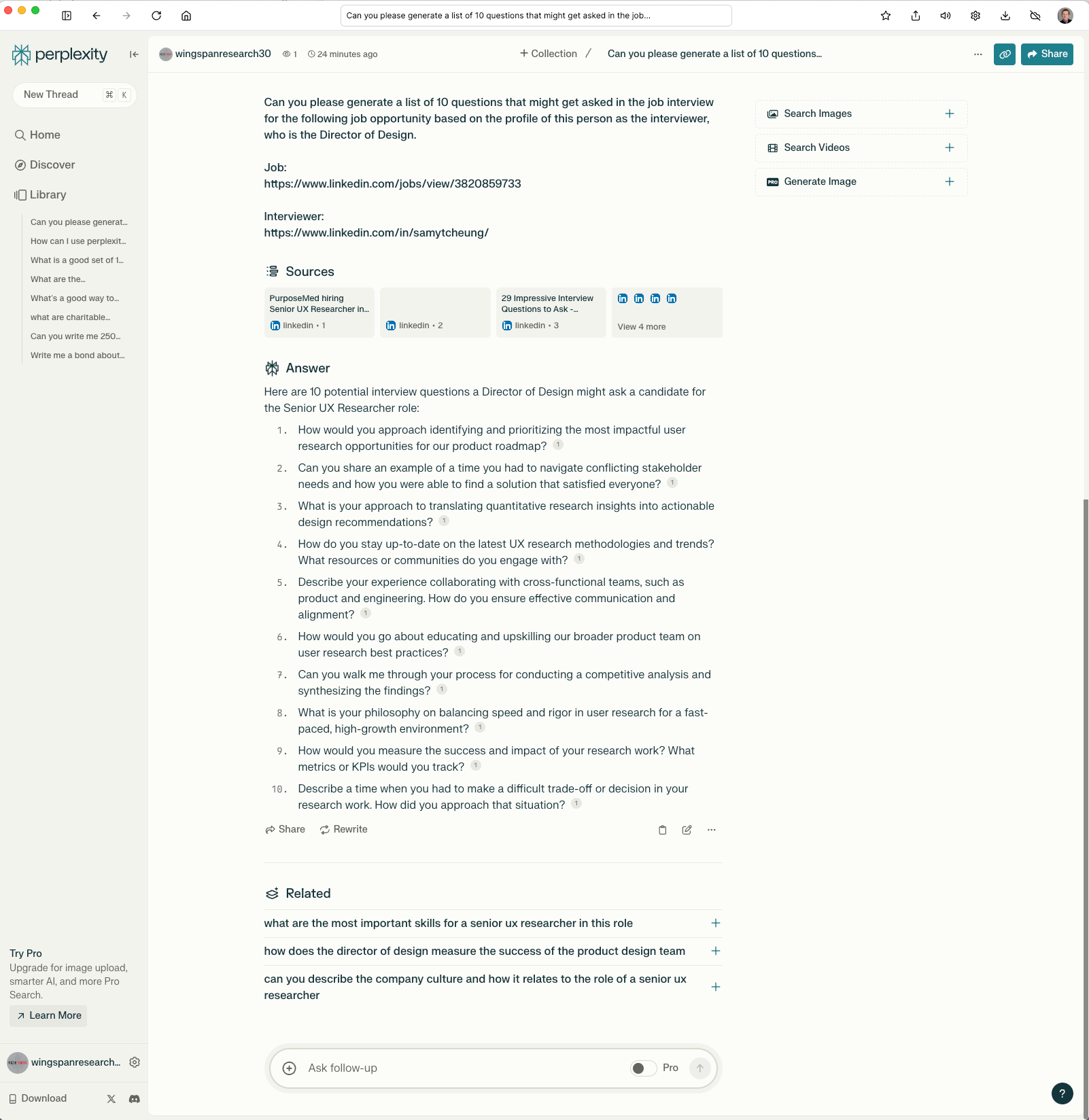
5. Answer the questions.
Now you are armed with some relevant questions and it's time to reflect and prepare. RESIST the temptation to feed the questions back into AI for immediate answers. Remember that interviewers are looking for genuine and authentic ideas about YOU, not generic answers. You need to prepare and present using a STAR approach and it need to be based on your true experiences. I typically do this preparation using bullet points, but you may prefer to work in long form. I use MIRO for this and I sometimes use AI to generate sentence format from my bullet points.
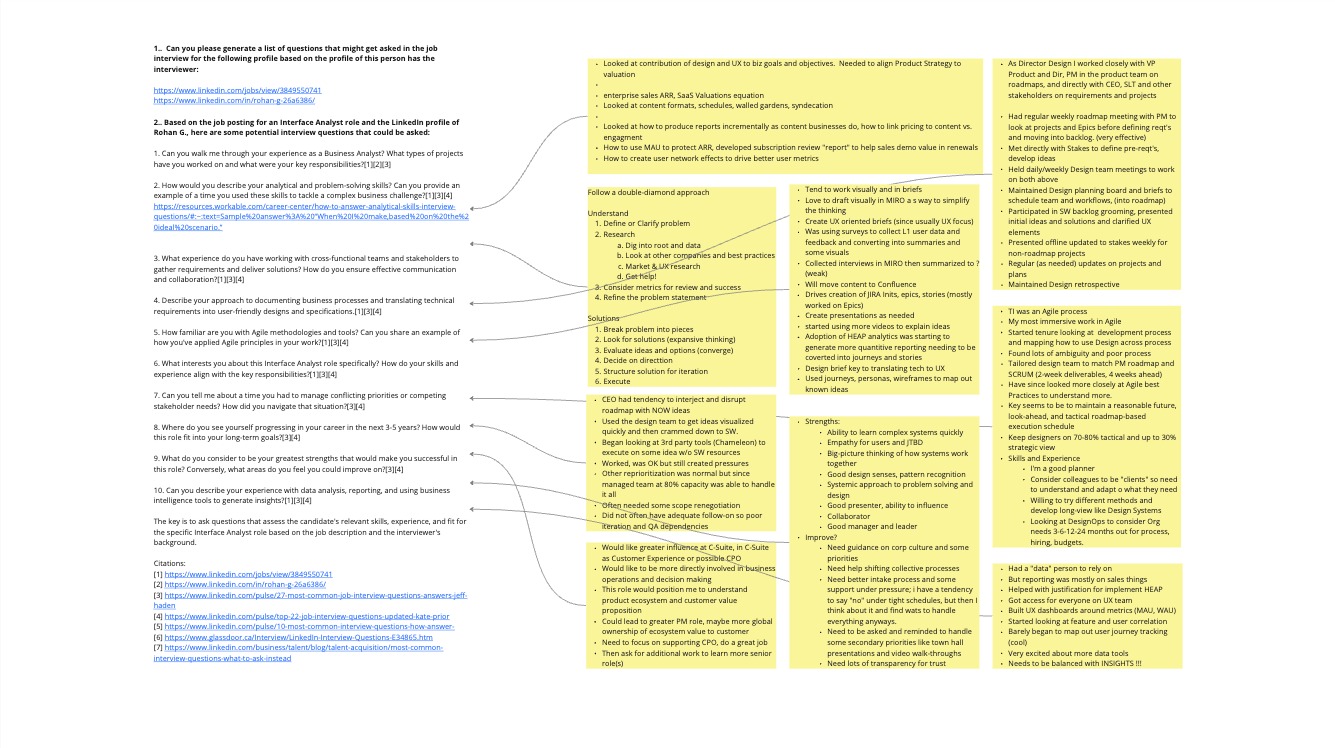
6. Ask the AI for help.
Now, if you don't have relevant experience for one or more questions, then you SHOULD ask the AI to answer so you can learn from it. I am not suggesting that you try and pass off this answer as your own, but if you do get asked that particular question, you can respond by saying you don't have any direct experience, but you have an idea of how I might approach it based on best practices you read about.
Using AI this way to prepare will help you think about your skills, attitude and values in a way that will communicate well with the different people who invest time and effort into interviewing you. There are always opportunities to steer the interview and often you'll be asked if you can talk about something you think is relevant, so even these are not the exact questions you will be better prepared to showcase yourself.
Like anything else, practice will help you be confident and prepared.
Good Hunting.